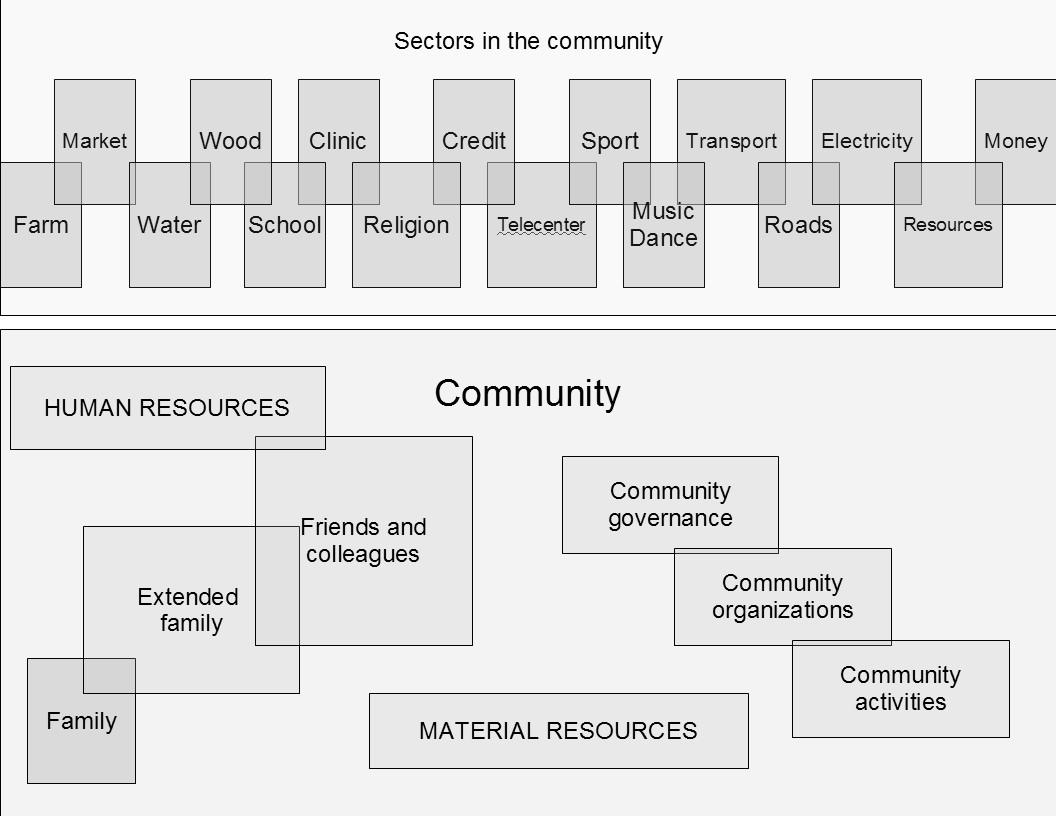|
|
|
Burgess Manuscripts
|
TrueValueMetrics
ACTION INFORMATION FOR ALL OF SOCIETY
Metrics about the State, Progress and Performance of the Economy and Society
Metrics about Impact on People, Place, Planet and Profit
|
|
Chapter 3
THERE ARE WAYS FORWARD
3-5 COMMUNITY FOCUS INITIATIVES
Community is an important focus for development ... this is where people live and where quality of life matters. Community centric metrics show how effectively resources are being used, not only those from external sources, but also local resources.
|
Focus on Community
Framework for Community Analytics
More understandable at the community level
In the community where life is live there are all sorts of activities and organizations. The complexity
is real, but on a scale that is understandable.
- There are people and families and communities.
- There are people and activities and projects and organizations
- There are buildings, blocks, neighborhoods and communities
- There are activities and sectors.
- There are no simple relationships … there are many variables.
An aggregate or average is not very useful for decision making ... what is needed is granular data that reflects a real reality ... not a distant derivative of reality! The community is where people live ... and a lot easier to understand. The complexity at the community level can be understood in a granular manner ... with cause and effect tightly linked. At the community level people have names, and are not merely part of a statistical pool. Activities are tangible, and data about costs and results much more easy to understand.
But there are complexities in a community … and there are a zillion different ways in which simple analysis can go wrong. Every human being is different … and this has the potential to be useful or to be a constraint in making progress happen. A place where there is progress is one where people have been able to organize so that there is progress, and other places where there is limited progress, it is because the human energy is getting wasted in one way or another.
 What gets measured gets done!
Governments, multilaterals and others
The overhead structure of the world's governance is big and complex … and a big reason why it is difficult to make progress. The World Bank and the regional development banks that work in ways that are very similar to the World Bank have procedures and processes that are very “Top Down” and, in the main, very inflexible. The same goes for the United Nations and the various bilateral agencies.
Non-governmental organizations (NGOs) were intended to bring more private sector innovation and enterprise into action … but where they get their funding from the public sector, they soon become the paid servants of the of the government, devoid of much enterprise and initiative. They maintain the “top down” way of working much to the detriment of potential beneficiaries.
The Corporate Model
Corporate financial reports
The corporate model for financial reporting is well understood. It is (1) the balance sheet; (2) the profit and loss account; (3) the cash flow statement; and (4) any explanatory notes and supporting schedules.
|
|
|
|

